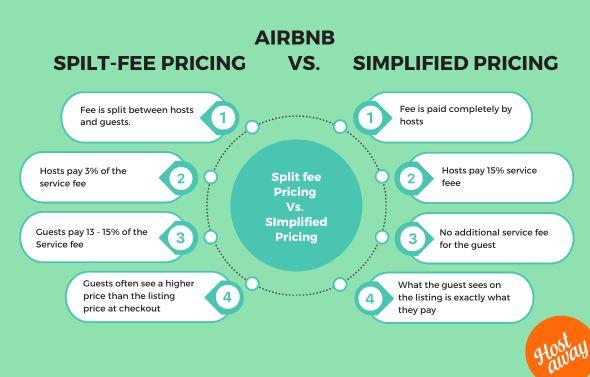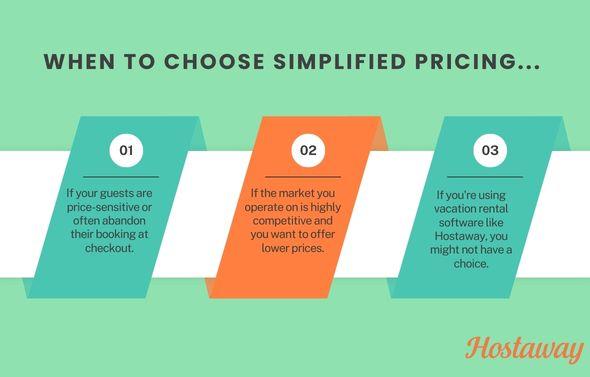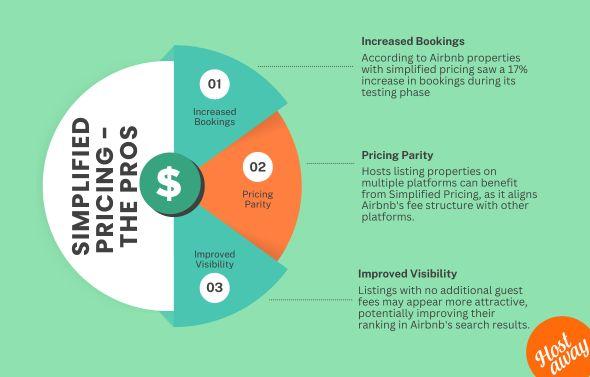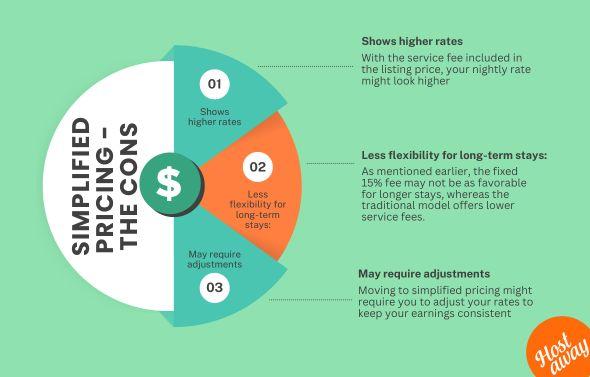Airbnb Host-Only 15.5% Fee Explained: What Hosts Need to Know

Key Takeaways
Starting October 27, 2025, Airbnb transitioned all PMS-connected hosts to a 15.5% host-only service fee, with 16% applying in Brazil.
The change eliminates Airbnb’s split-fee model, meaning guests will no longer pay a separate service fee at checkout.
Hosts control the final price guests see, as Airbnb now deducts the fee directly from the host’s payout.
Beginning December 1, 2025, most non-PMS hosts already on simplified pricing will also move to the standardized 15.5% rate.
Hosts can maintain profitability by adjusting rates, using automation tools and emphasizing transparent pricing to attract more bookings.
Airbnb rolled out a major change to its service fee structure on October 27, 2025 that changes how hosts get paid and how guests are charged. If you’re an Airbnb host — especially if you use property management software (PMS) or a channel manager — it’s important to understand exactly what’s changing, how it affects you and what actions you may need to take.
From Split Fees to a Single Fee
For years, Airbnb operated on a split-fee model, where both hosts and guests paid separate service fees:
Hosts: Paid a 3% commission on the booking subtotal (nightly rate + host-charged fees excluding taxes).
Guests: Paid an additional 14.1%–16.5% service fee added on top of the host’s rate.
Example under the old model:
If you listed a property at $100 per night, you’d earn about $97, while the guest would pay around $115 once the service fee was added.
What’s changing from October 2025
Airbnb is replacing this split model with a single, host-only fee of 15.5% for PMS-connected hosts, deducted directly from the host’s listed price. For hosts in Brazil, the host-only fee is 16%.
Hosts set the final price guests see.
Airbnb takes 15.5% from that amount before paying out earnings.
Example under the new model: If you set your listing at $115, Airbnb will deduct 15.5%, leaving you with about $97.18, while the guest pays exactly $115.
New PMS‑connected hosts that signed up with Airbnb from August 25, 2025 can only select the single-fee structure.
Quick fee comparison
Date | Fee Model | Host Fee | Guest Fee | Example Earnings |
Before Oct 27, 2025 | Split Fee | 3% | 14.1–16.5% | $97 (on $100 listing) |
From Oct 27, 2025 onward | Host-Only Single Fee | 15.5% | 0% | $97.18 (on $115 listing) |
How this change will vary by region
Airbnb's service fee and other Airbnb charges can vary based on region, policy and the type of listing, so understanding how Airbnb charge hosts and the impact of these Airbnb charges hosts is essential for optimizing your pricing strategy and maximizing profits.
Group | Current Model | Change Effective Date | New Model | Impact |
U.S. property managers (PMS-connected) | Split-fee (3% host + guest fee) | Oct 27, 2025 | 15.5% host-only | Distribution costs rise, but margins can be preserved with adjustments |
European & Non-U.S. property managers | ~15% host-only since 2020/21 | Oct 27, 2025 | 15.5% host-only (16% in Brazil) | Minimal impact; margins remain stable if rates are adjusted |
Non-PMS hosts (independent hosts) | Split-fee (3% host + 14–16% guest) | Dec 1, 2025 (if opted into single-fee) | 15.5% host-only | Only applies to hosts who previously opted into single-fee model |
Airbnb Host Fees: What It Is and How It Works for Hosts & Guests

Airbnb fees play a pivotal role in the hosting experience, directly impacting both hosts and guests throughout the booking process. For hosts, understanding how these service fees work is essential for managing profitability and setting the right expectations for potential guests. Airbnb’s service fees are designed to cover a range of operational costs, including secure payment processing, customer support and ongoing platform improvements that benefit both hosts and guests.
There used to be two primary fee structures on Airbnb: the split-fee model and the host-only fee model. In the split-fee model, the service fee was divided between hosts and guests — hosts pay about 3% of the booking subtotal, while guests pay a separate service fee that typically ranges from 6% to 12%. This means guests see an additional charge at checkout, separate from the nightly rate.
In contrast, the host-only fee model requires hosts to pay the entire service fee, usually between 14% and 16% of the booking subtotal, with no separate service fee charged to guests. This approach streamlines the total price guests see, making it more transparent and easier to compare with other booking sites.
PMS-connected hosts, if they hadn’t done so already, will have been automatically transitioned to the host-only fee model after October 27, 2025, while most other hosts will make the transition from December 1, 2025.
Understanding Airbnb's fee structures past and present
Previously, Airbnb offered two main fee structures for hosts, simplified pricing (sometimes known as a host-only fee) and a split-fee structure.
Split-fee pricing: Here, Airbnb hosts would pay a 3% service fee, while the guest gets charged an Airbnb guest service fee that ranges from 13% to 20%. This means guests often see a higher price at checkout than what’s initially shown in the listing. Most hosts on Airbnb use this split-fee structure.
Simplified pricing: This is similar to traditional hospitality listings and other OTAs that don’t have separate guest fee. In this model, the host pays a flat 15% service fee and there’s no additional service fee for the guest. What the guest sees on the listing is exactly what they pay — no surprises.
Host Only Fee vs Split Fee: Detailed Comparison Table
Feature | Host Only Fee Structure (current) | Split Fee Structure (old) |
Host Service Fee | 15.5% of booking subtotal (16% in Brazil, Super Strict cancellation policy may add +2%, 28+ nights bookings may be less) | ~3% of booking subtotal |
Guest Service Fee | $0 (included in rate) | 14-16.5% of booking subtotal) often less for 28+ nights) |
Total Airbnb Fees | 15.5% | 15-17% combined |
Guest Price Transparency | Complete (all-inclusive) | Low (price increases at checkout) |
Mandatory For | Software connected hosts, most hospitality-type listings. | Individual hosts in select regions |
$100 Booking Example | Host pays $15.50, Guest pays $100 | Host pays $3, Guest pays $115 |
$500 Booking Example | Host pays $77.50, Guest pays $500 | Host pays $15, Guest pays $$575-582.50 |
Long-term Stays (28+ days) | Host pays 15.5% or less | Reduced guest fees (~10% total) |
Dynamic Pricing Impact | Hosts must factor in 15.5% fee | More flexibility in rate adjustments |
Are All Airbnb Hosts Required to Use Simplified Pricing?
Airbnb’s host-only fee model is becoming standard across more categories of hosts. As of October 27, 2025, this model applies a 15.5% service fee (deducted from the host’s listed rate) instead of relying on the older split-fee system.
Here’s who is required to adopt this structure:
Hosts connected to third-party software
If your Airbnb account is integrated with vacation rental software like Hostaway, you are required to use the simplified pricing model.
What’s changing: U.S. PMS-connected hosts who previously used the split-fee (3% host + guest fee) have been automatically transitioned to a 15.5% host-only fee starting October 27, 2025.
For European and most non-U.S. markets, this is simply a small adjustment from the existing ~15% fee (or 16% in Brazil).
Certain types of listings
If you manage property types that operate like hotels — such as aparthotels, hostels or serviced apartments — Airbnb requires simplified pricing. This ensures more transparent and competitive rates that align with traditional hospitality industry standards.
Hosts in specific countries
Hosts outside of regions like the United States, Canada, Taiwan, Argentina, or Mexico have already been required to use the host-only model since earlier rollouts. For these markets, the October 2025 update is primarily a fee adjustment to 15.5%, helping Airbnb maintain global consistency in pricing across different currencies and tax environments.
Non-PMS-connected hosts
Hosts who currently don’t use a vacation rental software like a PMS or channel manager can continue to use the split-fee model until the end of November 2025. They will be transitioned to the standardized single-fee of 15.5% from December 1, 2025.
What About Airbnb Guest Fees?
It’s important to note that guest fees such as cleaning fees, pet fees or extra guest charges still apply.
Cleaning fees cover the cost of preparing the property between stays.
Security deposits (when applied) provide protection against damages and are refundable.
Pet fees help offset additional cleaning or wear and tear.
Extra guest fees account for higher occupancy, utilities, and cleaning needs.
Clear, upfront disclosure of these additional charges in your Airbnb listing is essential. Transparent pricing not only improves guest satisfaction but also helps reduce misunderstandings and negative reviews.
How to Decide Which Airbnb Fee Model to Use
***Important info for Hostaway Users***
If you’ve only just switched or been switched to the host-only fee, make sure to adjust your pricing in Hostaway to account for the higher Airbnb commission.
Independent hosts who remain on Airbnb’s native platform can still use the split-fee model, though those who previously opted into simplified pricing will also move to 15.5% in December 2025.
For those who still have flexibility, here are the main considerations:
Guest perception and booking rates
If your guests are price-sensitive or tend to abandon bookings at checkout when extra fees appear, the simplified model may increase conversion. By eliminating the visible guest service fee, the upfront nightly price looks more transparent.
For example: A $100 listing under split fees may appear to guests as $115–$120 after Airbnb service fees and taxes. With simplified pricing, the host sets the full price (e.g., $115), making the guest experience smoother and often boosting bookings in competitive markets.
Earnings per booking
If your goal is to retain a higher percentage of the booking subtotal, the split-fee model can be more favorable. Here, hosts pay only ~3%, while Airbnb adds a separate service fee to the guest side (around 14–16%).
This may maximize host payouts in markets where guests are less concerned about seeing extra fees at checkout. For long-term stays, the split-fee model is especially beneficial since Airbnb often caps or reduces guest fees for extended bookings.
Software integration
If your account is connected to a property management system (PMS) or channel manager, you no longer have the option to choose. Airbnb transitioned all PMS-connected to the 15.5% host-only fee model (16% in Brazil) on October 27, 2025. This aligns Airbnb with other major OTAs and ensures consistency for multi-channel distribution.

Other considerations
Additional fees: Regardless of the model you choose, clearly outline any additional fees like cleaning fees, security deposits or pet fees in your listing to avoid misunderstandings.
Cancellation policies: Hosts with a clear host's cancellation policy may benefit from a pricing model that aligns with guest preferences, minimizing abandoned bookings and misunderstandings.
Understanding Airbnb fees: Familiarize yourself with the common fee structure for your market and property type to ensure your pricing remains competitive and profitable.
How to Manage Airbnb Fees and Pricing Under the Simplified Pricing Model
Effectively managing Airbnb fees is essential for running a profitable vacation rental business. With the rollout of the 15.5% host-only fee model for PMS-connected hosts in October 2025 (and for independent hosts who previously opted into simplified pricing on December 1, 2025), fee management now requires even more attention to detail.
A strategic approach starts with setting the right nightly rates. Using a dynamic pricing tool helps adjust prices based on demand, seasonality and local events, allowing hosts to capture higher revenue during peak periods and remain competitive during slower times. Regularly updating rates ensures that margins are preserved even with the higher Airbnb service fee.
In addition to the base price, hosts should carefully account for all additional costs, such as cleaning fees, pet fees and local taxes. Being transparent about these charges not only sets guest expectations but also prevents negative booking experiences.
Automation tools like Hostaway further simplify fee management. These platforms make it easier to apply consistent markups to account for Airbnb’s new host-only fee, automate pricing updates and manage extra charges. By reducing manual errors and ensuring that fees are calculated correctly, hosts can focus on delivering an excellent guest experience while protecting their profitability.
Staying informed about Airbnb’s evolving fee structures, combined with smart use of technology, allows hosts to adapt quickly, minimize financial risks and keep their vacation rental business competitive in a changing marketplace.
How Will the Mandatory Airbnb Fee Model Impact Hosts?
The transition to simplified pricing can feel like a significant shift for hosts accustomed to the traditional split-fee model. In addition to accommodation bookings, Airbnb's service fees also apply to service reservations, such as experiences or services bookings. Hosts should be aware of these charges when offering additional services.
Control over guest pricing
A clear benefit of simplified pricing is that hosts gain full control over the final price displayed to guests. Since the Airbnb service fee is no longer added at checkout, the price guests see is the price they pay. This transparency can improve the booking experience and may lead to higher conversion rates.
Price perception and competitive positioning
While hosts control the final guest-facing price, nightly rates may appear higher compared to listings that still use the split-fee model. To stay competitive, it’s important to update your pricing strategy. Carefully adjusting your nightly rates ensures you maintain profitability under the new 15.5% host-only fee while continuing to attract bookings in your market.
Impact on long-term stays
For hosts who frequently welcome long-term guests, the simplified pricing model may feel less favorable at first glance. Unlike the split-fee model, where guest service fees could be reduced or capped for extended stays, the host-only model applies a fixed 15.5% fee (16% in Brazil) regardless of booking length. This can reduce margins unless nightly rates are adjusted strategically.
To illustrate, here’s a hypothetical case study of an Airbnb host managing 15 vacation rental units who transitioned from the split-fee model to the mandatory host-only fee after connecting to property management software.
Starting situation:
Average nightly rate: $150
Cleaning fee: $75
Average stay: 4 nights
Host fee under split structure: 3% ($27 per booking)
Guest paid: $675 total ($600 accommodation + $75 cleaning + ~$95 in guest service fees)
Implementation strategy:
Increased nightly rate to $172 (+14.7%)
Maintained $75 cleaning fee
New guest total: $763 ($688 accommodation + $75 cleaning)
Host fee under simplified pricing: 15% ($114.45 per booking)
Net host payout: $648.55 (vs. $673 under split fee)
Results after 12 months:
12% increase in booking conversion rate
8% higher overall revenue despite lower per-booking net
Reduced guest inquiries about “hidden fees”
Improved review scores mentioning “transparent pricing”
Metric | Split Fee (old) | Host Only Fee (current) | Change |
Avg Guest Payment | $675 | $763 | +13% |
Host Net Per Booking | $673 | $649 | -3.6% |
Monthly Bookings | 25 | 28 | +12% |
Monthly Revenue | $16,825 | $18,172 | +8% |
What are the Pros and Cons of Simplified Pricing for Airbnb Hosts?

Pros of Airbnb simplified pricing for hosts
Increased bookings
With the guest service fee removed, guests see a more transparent total price at checkout. This can reduce booking friction and improve conversion. Airbnb has previously reported that listings using simplified pricing experienced noticeable boosts in booking rates, and many hosts continue to see stronger performance after the switch.
Pricing parity
Simplified pricing aligns Airbnb with other major online travel agencies, where guests already expect to see a single, upfront price. This consistency across platforms helps hosts stay competitive and makes price comparisons easier for travelers.
Improved search ranking and visibility
Listings without added Airbnb guest service fees may appear more appealing in search results. This can enhance visibility on the platform, leading to more clicks and potentially more bookings.

Cons of Airbnb simplified pricing for hosts
The host-only model applies a fixed 15.5% fee (16% in Brazil). Without proper rate adjustments, hosts risk reduced margins compared to the old 3% split-fee structure.
Perceived higher nightly rates
Because the fee is now built into the host’s price, your listing may look more expensive compared to competitors still using the split-fee model. Careful rate management is required to remain competitive.
Long-term stay impact
Under the split-fee model, Airbnb often reduced guest service fees for longer bookings. With the host-only fee, no such cap exists — the full 15.5% applies regardless of stay length, which can affect profitability for extended reservations.
Comparing Airbnb Pricing Models for Hosts: Split-Fee vs. Simplified Pricing
To get a clear picture, let's break down an example of a 4-night stay at $100 per night, assuming a 16% service fee.
As the table shows, if you want to keep your earnings steady with simplified pricing, you'll probably need to raise your rates by about 14%. If you bump them up by 15%, you might even earn a bit more, while the guest's total cost stays the same.
Pros | Cons |
Increased bookings: With no guest service fee added at checkout, guests see a transparent total price, which can reduce friction and improve conversion. | Higher distribution costs: Hosts now pay a fixed 15.5% fee (16% in Brazil). Without rate adjustments, margins can shrink compared to the old 3% split-fee model. |
Pricing parity: Aligns Airbnb with other OTAs where guests expect a single upfront price, helping hosts stay competitive across platforms. | Perceived higher nightly rates: Since the fee is built into the host’s price, listings may appear more expensive than competitors still on split-fee pricing. |
Improved search visibility: Listings without added guest service fees are often more attractive in search results, potentially boosting ranking and bookings. | Long-term stay impact: The full 15.5% fee applies regardless of booking length, unlike the split model where guest fees for extended stays were often capped or reduced. |
Solutions to potential issues
While the 15.5% host fee structure presents some challenges, particularly regarding earnings and profit margins, there are effective strategies to mitigate these concerns:
Earnings per booking: Use Hostaway's dynamic pricing tools to adjust your rates in real time. This ensures your pricing remains competitive while covering the 15% fee, helping you maintain profitability without deterring guests.
Booking rate: Highlight the all-inclusive pricing in your listing description so guests know there won't be any hidden fees. This transparency can make your property more appealing, especially in competitive markets.
Guest perception: Use Hostaway's guest communication tools to emphasize your pricing transparency. This can lead to better reviews and repeat business, as guests appreciate knowing they are getting good value with no surprise fees.
Competitiveness: Stay ahead of the competition by using Hostaway's competitive analysis tools to monitor local pricing trends. This will help you adjust your pricing in real time, ensuring your listing remains attractive in your market.
Price sensitivity: Hostaway's dynamic pricing feature lets you fine-tune your rates based on market demand, helping you stay competitive while ensuring profitability. This is especially important in price-sensitive markets.
Tax implications: Simplify your tax reporting by using financial reporting tools, which provide detailed breakdowns of earnings and fees, making it easier to manage your finances.
Long-term viability: Regularly assess your market with Hostaway's analytics to ensure that the simplified pricing model continues to meet your financial goals. Staying informed about market trends allows you to adapt your strategy as needed.
Search ranking & visibility: Use ranking management tools to boost your visibility in Airbnb's search results. This can help you capitalize on the benefits of simplified pricing, ensuring your listing remains prominent and attractive to potential guests.
Impact on profit margins: Protect your margins by using Hostaway's revenue management tools to strategically adjust your pricing and occupancy rates. These tools help you maximize your earnings, even with the 15% fee.
Key takeaway
Simplified pricing makes Airbnb listings more transparent and competitive in search results, but hosts must adjust rates strategically to protect margins, especially for long-term stays.
The Hostaway Advantage in Navigating Airbnb's Fee Changes
With Airbnb moving hosts into a standardized 15.5% service fee rate through the last quarter of 2025, hosts need to adjust their pricing strategy to protect margins while staying competitive. .
Hostaway makes this transition seamless. The platform’s automation tools allow hosts to apply the correct markups across Airbnb, ensuring that rates reflect the higher host fee without disrupting base pricing. This is particularly valuable for property managers overseeing multiple listings, where manual updates would be time-consuming and prone to error.
Beyond automation, Hostaway provides detailed analytics that show the real impact of Airbnb’s new fee structure on bookings, revenue, and profitability. With these insights, hosts can make data-driven adjustments that balance competitiveness with healthy margins.
By integrating Airbnb’s simplified pricing directly into its system, Hostaway eliminates guesswork and helps both new and experienced hosts adapt quickly. Whether you’re operating in a highly competitive urban market or managing a diverse portfolio across regions, Hostaway ensures your business remains profitable and positioned for long-term growth under Airbnb’s updated fee model.
Key Takeaways for Airbnb Host-Only Fee Success
Airbnb’s shift to a 15.5% host-only fee structure marks a major change in how hosts must approach pricing and revenue management. To succeed, hosts need to adjust base rates strategically, preserve profitability, and lean into the advantages of transparent pricing to boost conversion rates.
Essential action items
Adjust nightly rates and fees to account for the 15.5% host service fee (16% in Brazil)
Monitor booking performance closely to measure the impact in your market
Use dynamic pricing tools to automate rate adjustments and stay competitive
Evaluate revenue outcomes across both short- and long-term stays before finalizing strategy
The simplified pricing model reflects Airbnb’s evolution toward industry-standard transparency. While it raises distribution costs, it also improves guest trust and booking confidence by showing a clear, all-in price at checkout.
Hosts who respond proactively — by recalibrating rates, tracking performance, and optimizing their pricing strategy — can maintain profitability while benefiting from stronger conversion rates and guest satisfaction. By embracing transparent pricing and adapting quickly, hosts can turn this change into an opportunity for higher long-term revenue.
FAQs
Do I pay 15.5% on cleaning fees and additional charges too?
Yes. The 15.5% host service fee (16% in Brazil) applies to the booking subtotal, which includes nightly rates, cleaning fees, pet fees and extra guest fees. The only exclusions are taxes and security deposits.
How do cross currency bookings affect the host only fee?
The 15.5% fee is applied consistently, regardless of currency. Airbnb calculates the fee based on the final booking subtotal after any cross-currency adjustments are made, ensuring hosts are charged the same percentage across markets.
Can super strict cancellation policies affect my service fee percentage?
Yes. In some cases, hosts using super strict cancellation policies may be charged slightly higher fees. This applies primarily to specific policy tiers defined by Airbnb.
What if I didn't update my PMS settings before October 27, 2025?
Airbnb transitioned all PMS-connected hosts to the host-only fee model on October 27. If you haven't already, adjust your pricing to ensure your nightly rates reflect the higher fee structure.
How should I adjust my nightly rates to offset the new fee?
Most hosts will need to raise nightly rates by approximately 14–16% to maintain the same earnings under the new host-only model. For example, if you previously listed a property at $100, increasing it to $115 keeps both your payout and the guest’s final price roughly aligned with the old split-fee structure.
Ready to find out how Hostaway can transform your business?
